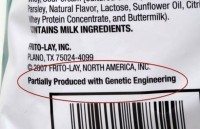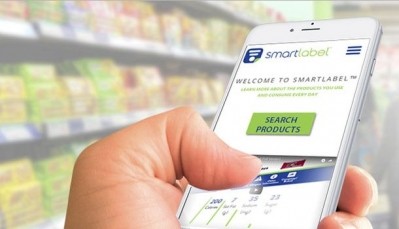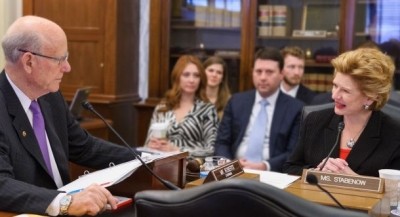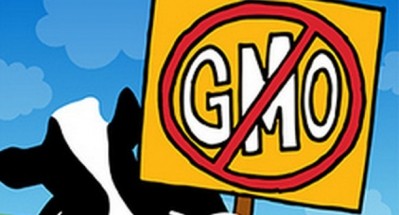Federal GMO labeling bill hailed as 'true compromise,' but critics say it's woefully inadequate
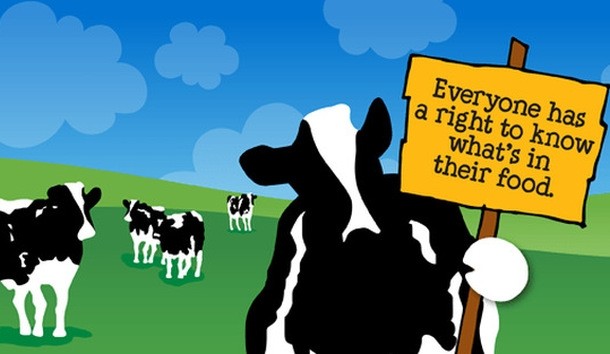
The bill – agreed by Senate ag committee ranking member Debbie Stabenow (D-MI) and committee chairman Pat Roberts (R-KS) - will need to gain approval in the Senate and the House of Representatives, but has the support of the Grocery Manufacturers Association (GMA), which has historically opposed a mandatory approach but likes the flexibility the bill offers manufacturers over the form that on-pack disclosures might take.
Anti-GMO activists such as Food & Water Watch, however, urged the Senate to reject the bill, which it said was “designed to ensure that big food processing companies and the biotechnology industry continue to profit by misleading consumers” (by allowing companies to use QR codes or other symbols instead of forcing them to state on pack that a product uses GMOs).
As for major food manufacturers, the deal – should it pass – would trump all state-led GMO labeling laws and prevent a patchwork of different rules for different states, a major benefit for large companies.
However, it comes a little late in the day, given that many of them have already started rolling out GMO labeling nationwide in order to comply with a law about to come into effect in Vermont on July 1 that insists upon mandatory on-pack wording, not QR codes or other symbols.
As the chances of this passing both houses before July 1 are close to zero, the Vermont law will still apply in the short term, however, even if the federal solution does get the thumbs up ultimately.
“This bipartisan bill is a win for consumers and families. For the first time ever, consumers will have a national, mandatory label for food products that contain genetically modified ingredients. This proposal is also a win for our nation’s farmers and food producers.”
Senator Debbie Stabenow (D-MI)
No reference to 'natural' claims in the bill
The 14-page bill – which uses a narrow definition of genetic engineering (traits developed through recombinant DNA techniques, which involve transferring a gene from one organism to another) that would exempt new techniques such as gene editing from labeling – would come into force two years after it is enacted.
Like many state-led bills, the Roberts/Stabenow bill would not require labeling on milk or meat from animals fed GM feed, or food sold in restaurant “or similar retail food establishment.”
It does not make any reference to ‘natural’ claims, meanwhile, which have been a feature of many state-driven GMO labeling bills, including Act 120 in Vermont.
Would definition exclude scores of ingredients made from GMOs?
One fact immediately picked up by Dr. William Hallman, Chair of the Department of Human Ecology at Rutgers University, is that - as written - the definition of 'bioengineered' could potentially exclude scores of products containing heavily refined ingredients derived from GM crops, as it states (p1) that food qualifying for labeling "contains genetic material."
He added: "According to the definition, the food must contain genetic material i.e. DNA. This requirement would presumably exclude ingredients made from genetically modified crops that are then refined to remove DNA. This would include commonly used ingredients such as refined sugar from GM sugar beets, corn syrup from GM corn, and oil from GM canola."
Firms can disclose GMO ingredients via “text, symbol or digital link.”
Under the legislation, food companies would have the option of disclosing GMO ingredients via “text, symbol or digital link.” Small manufacturers (which are nor defined in the text, but would get an additional year to comply) would be allowed to list a phone number for consumers to call, or a website.
Those using smartlabels or other digital disclosures would have to add a phrase such as ‘Scan here for more food information,’ but would not have to use the term ‘GMO’ on the label, something to which anti-GMO activists strongly object.
Many leading food manufacturers are already labeling food for GMOs in order to comply with legislation coming into effect in Vermont on July 1. Check out Just Label It's collection of GMO labeling pics it has already spotted on US store shelves.
Small companies would have the option of putting a phone number or website URL on labels instead of the digital code.
As for measures designed to appease those likely unhappy with the concessions over smart labels and digital codes, the bill says that USDA must conduct a survey no later than a year after enactment date to “identify potential technological challenges,” which may prevent some consumers from accessing the GMO disclosures via “electronic or digital disclosure methods.”
If USDA determines that people are not able to access the information, other options will be explored, says the bill.
Non-GMO claims confusion
One aspect of the bill that is a little confusing is the reference to non-GMO claims, which many manufacturers currently make. According to page 14, organic certified products will be allowed to use the term ‘non-GMO.’
However, a paragraph at the bottom of page 12 suggests that manufacturers who are not making certified organic products will not be able to automatically use the 'non-GMO' claim if their products don't meet the 'bio-engineered' definition.
“A food may not be considered to be ‘not bioengineered,’ ‘non-GMO’ or any other similar claim describing the absence of bioengineering in the food solely because the food is not required to bear a disclosure that the food is bioengineered under this subtitle.”
Asked what he made of the paragraph, Martin J Hahn, a partner at law firm Hogan Lovells, told FoodNavigator-USA: "I interpret the language as trying to make it clear that, if a food does not fall within the federal standard of a bioengineered food, it does not automatically qualify for a Non-GMO claim. In many ways the provision captures the practices that exist today. Many foods would have fallen outside of the Vermont definition of genetically engineered foods but would not have qualified for the standards created by the Non-GMO Project or the NSF True North standards.
"For example, milk was not considered genetically engineered under the Vermont law but milk could not be verified under the Non-GMO Project or NSF True North programs unless the cows consumed non-GMO feed and the milk met the other program criteria."
A spokeswoman for the Senate Ag Committee later confirmed this to FoodNavigator-USA: "The language says you can’t be considered “non-GMO” SOLELY because the food isn’t require to disclosure under the national bioengineered food disclosure standard... They just can’t say 'because it’s not subject to the new standard, the product is non-GMO.'"
Non-GMO Project: Bill is full of 'huge loopholes'
However, Megan Westgate, executive director at the Non-GMO Project, said the bill was full of loopholes, adding: "While much has been made of the significant problems with the type of labeling proposed in this bill (QR codes, 800 numbers and websites), an equally big problem is that the bill is filled with huge loopholes, meaning that most GMO products could escape any sort of labeling at all.
"Section 294 of the bill indirectly acknowledges the loopholes, saying that just because a product is exempt from mandatory disclosure under the bill does NOT mean that it is eligible to make a non-GMO claim. In other words, a lot of products that are not non-GMO would also not be labeled under this bill. Indeed, this watered down legislation is a world away from the rigorous protocols required of any product bearing the Non-GMO Project Verified label. Through all the turmoil of the mandatory labeling battles, the Non-GMO Project butterfly will continue to provide the public with a meaningful way to avoid GMOs."
Stakeholder reaction
So how have key stakeholders responded? Here are some early reactions:
“I am very proud that Vermont has led the country in GMO labeling. This bill would preempt what Vermont and other states have done. GMO labeling exists in dozens of countries around the world. It is not controversial. Already major food companies in our country have begun labeling their products. People have a right to know what is in the food they eat. I am going to do everything I can to defeat this legislation.” Senator Bernie Sanders
"The bill would contain strong preemption that, if passed into law, would establish a national standard that would create uniformity in how consumers throughout the country could access information about whether foods are bioengineered. The bill would direct the Secretary of Agriculture to go through rulemaking providing an opportunity for stakeholders to determine the foods, ingredients, and processing aids that should be included or excluded from the standard. The bill also provides companies with much need flexibility in determining how the disclosure should be made. The company can determine whether the disclosure should be made via a logo or statement on the label or through a digital code that would provide access to information about the product, including whether bioengineering has been used." Partner, Hogan Lovells
"This is poorly written, bad legislation. Far from compromise, it reflects the wishes of Big Food without the careful checks and balances, thoughtful crafting and transparent goals associated with modern food policy. There is no labeling requirement, only a requirement for use of a QR code; no enforcement provisions; and worst of all the definition of genetically engineered is deeply flawed.” Karen E. Howard, CEO/Executive Director, Organic & Natural Health Association
"While the latest proposal differs from the approach passed by the House of Representatives in July 2015, it achieves our primary goal: federal preemption to prevent a patchwork of conflicting state labeling laws. It also provides consistency to consumers. The new proposal provides options for companies to disclose information in a way that does not stigmatize a safe and proven technology. I encourage both the Senate and House to act swiftly before the entire food supply chain is disrupted by Vermont's labeling law." Snac International president and CEO Tom Dempsey
“While we are pleased this proposal will finally create a national, mandatory GMO disclosure system, protects organic labels, and will cover more food than Vermont’s groundbreaking GMO labeling law, we are disappointed that the proposal will require many consumers to rely on smart-phones to learn basic information about their food… This proposal falls short of what consumers rightly expect — a simple at-a-glance disclosure on the package.” Gary Hirshberg, chairman, Just Label It and Stonyfield Farm
“This deal can still be described as the Denying Americans the Right to Know (DARK) Act… Any bill on GMO labeling that would result in anything less than mandatory on-package labeling is unacceptable. We urge the Senate to reject this bill.” Food & Water Watch
“This kind of labeling system is inadequate and inherently discriminatory against one third of Americans who do not own smartphones, and even more so against rural, low income, and elderly populations or those without access to the internet.” Andrew Kimbrell, executive director, Center for Food Safety
“QR codes, 1-800 numbers, or websites aren’t a solution. The new Senate bill is just another way to allow companies to keep consumers in the dark.” Jean Halloran, director of food policy initiatives for Consumers Union
“This is the commonsense solution for consumers, farmers and businesses… It is critically important that Congress approve this legislation as soon as possible because Vermont’s mandatory labeling law is already having negative impacts.” Pam Bailey, president and CEO, Grocery Manufacturers Association
“It is essential that the Congress – both the Senate and the House – act immediately to pass the Roberts-Stabenow agreement and send it to the President for his signature. Vermont’s mandatory GMO food labeling law goes into effect on July 1, and it is already generating chaos in the marketplace.” Jim Greenwood, president and CEO, BIO
"Given this year’s political climate, the Natural Products Association (NPA) would be happy to see legislation passed this year that is consistent with our principle of having one federal standard versus a patchwork quilt of state regulations." Dan Fabricant, Ph.D., CEO, executive director, NPA
More reaction to follow....
Read the bill in full HERE.


